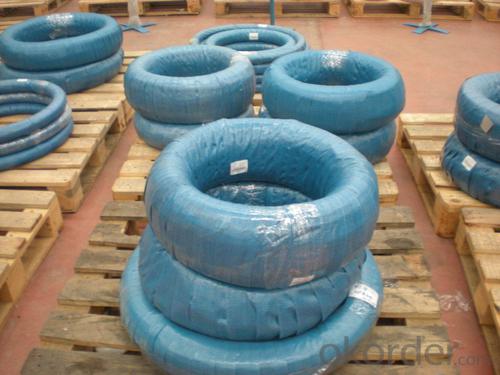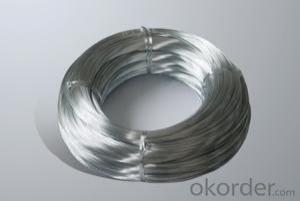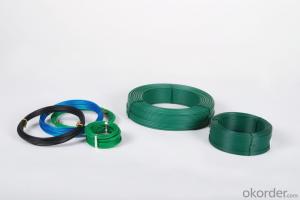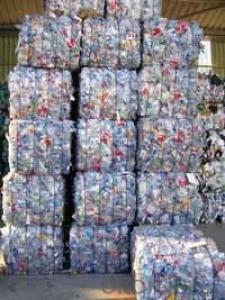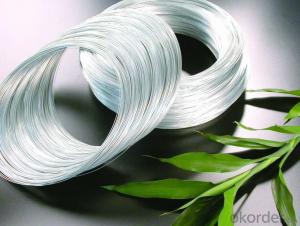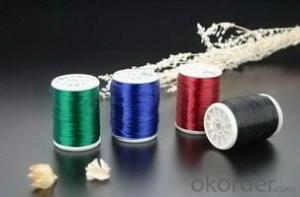PIANO WIRE
- Loading Port:
- China Main Port
- Payment Terms:
- TT OR LC
- Min Order Qty:
- -
- Supply Capability:
- -
OKorder Service Pledge
Quality Product, Order Online Tracking, Timely Delivery
OKorder Financial Service
Credit Rating, Credit Services, Credit Purchasing
You Might Also Like
Steel grade should be 82C,65Mn,70#,72B,M10etc.Size from 0.4-7.0mm.coil weight can reach 500-1000KGS.we can produce piano wire according to JIS3522,we import material from japan,and bought Janpanese machine.we can make it in high quality,meanwhile good service for you.
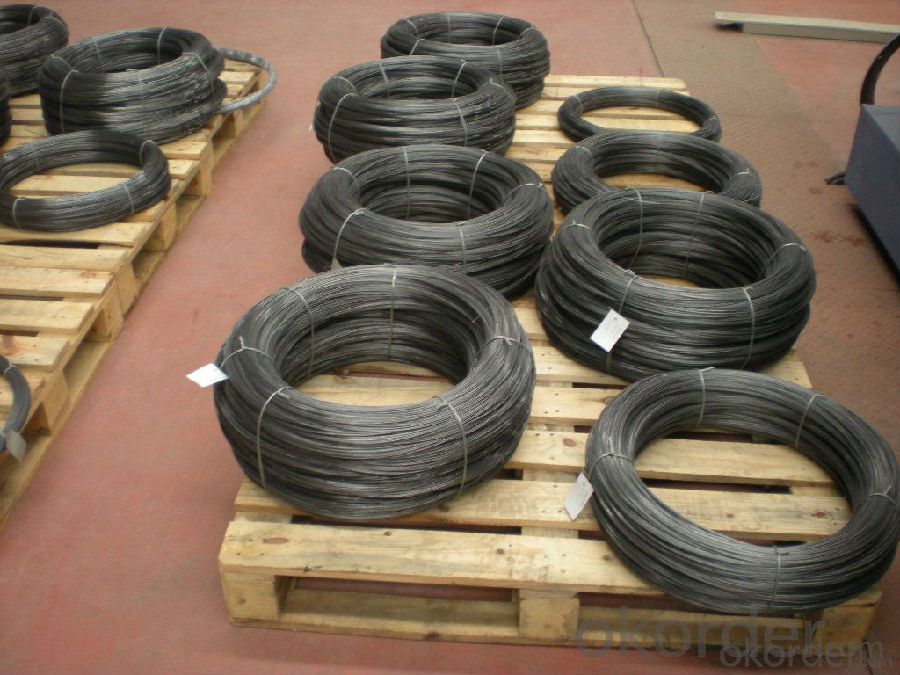
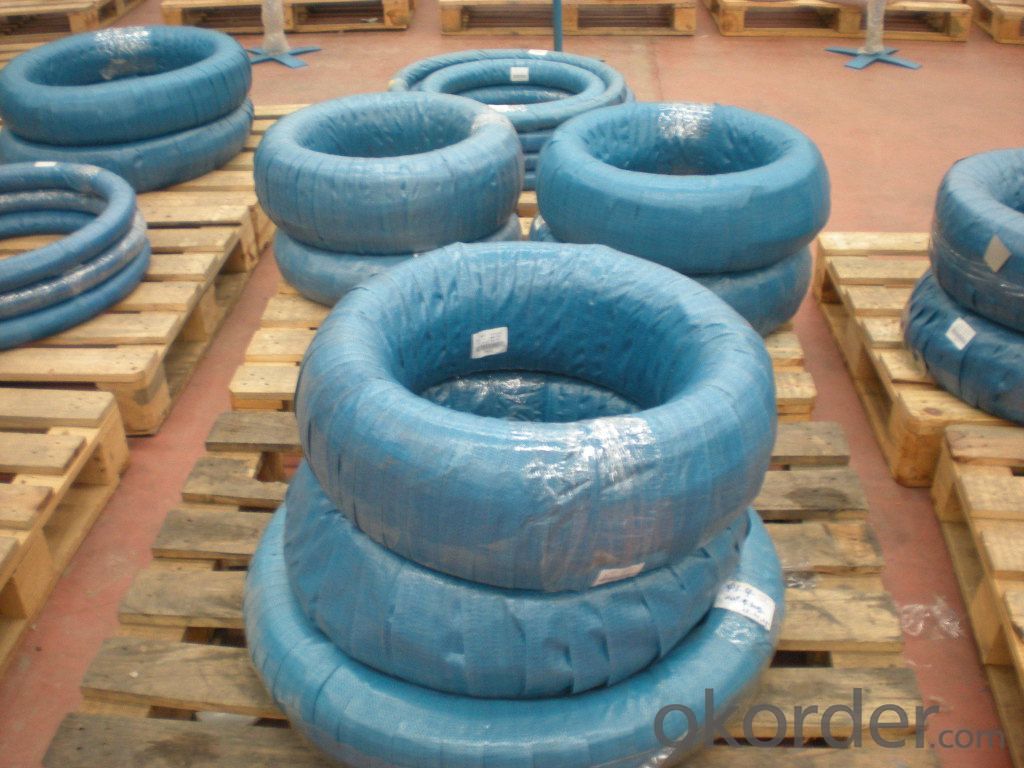
- Q: How does special steel perform in stamping applications?
- Special steel performs exceptionally well in stamping applications. It is specifically designed to withstand the intense pressure and forces involved in stamping processes. Its high strength and hardness properties enable it to maintain its shape and integrity during stamping, resulting in precise and accurate formed parts. Additionally, special steel's excellent wear resistance helps prolong tool life, reducing maintenance and replacement costs. Overall, special steel is a reliable and efficient material choice for stamping applications.
- Q: How is special steel used in the production of hydraulic components?
- Special steel is used in the production of hydraulic components due to its high strength, corrosion resistance, and ability to withstand extreme pressure and temperature conditions. It helps in manufacturing durable and reliable hydraulic parts such as cylinders, valves, fittings, and pistons, ensuring efficient functioning and long-lasting performance of hydraulic systems.
- Q: How does special steel contribute to improving product quality?
- Special steel contributes to improving product quality in several ways. Firstly, it offers superior strength and durability compared to regular steel, making it ideal for applications that require high performance and reliability. This ensures that products made with special steel will have a longer lifespan and reduced chances of failure, thereby enhancing overall quality. Additionally, special steel can be tailored to have specific properties like corrosion resistance, heat resistance, or magnetic properties, which are crucial in various industries such as automotive, aerospace, and medical. By using special steel, manufacturers can produce products that meet specific performance requirements, resulting in improved quality and customer satisfaction.
- Q: Can special steel be used for making electrical components?
- Yes, special steel can be used for making electrical components. Special steel refers to a group of steels with specific properties and characteristics that make them suitable for various applications, including electrical components. These steels are often engineered to have high electrical conductivity, low electrical resistance, good magnetic properties, and excellent heat resistance. They are typically used in electrical engineering applications where high performance and reliability are required, such as in the manufacturing of transformers, motors, generators, and electrical transmission systems. Special steel can also provide resistance to corrosion and high temperatures, which further enhances its suitability for electrical component manufacturing.
- Q: How does special steel perform in abrasive wear applications?
- Special steel is known for its excellent performance in abrasive wear applications. It is specifically designed to withstand the harsh conditions and high levels of abrasion that occur in various industrial processes. One of the key features of special steel is its exceptional hardness. It is able to resist the abrasive forces exerted by different materials, such as rocks, sand, or minerals, without experiencing significant wear or deterioration. This hardness is achieved through a combination of alloying elements and heat treatment processes, which enhance the steel's ability to retain its structural integrity even under extreme wear conditions. Additionally, special steel often possesses a high level of toughness, which allows it to absorb impact and resist fracture or chipping. This property is particularly important in abrasive wear applications, where materials constantly collide and generate high levels of stress. The toughness of special steel enables it to withstand these impacts and maintain its performance over a long period of time. Furthermore, special steel can exhibit excellent resistance to corrosion, which is crucial in abrasive wear applications that involve exposure to moisture, chemicals, or other corrosive agents. This resistance ensures that the steel does not deteriorate or lose its effectiveness due to chemical reactions or oxidation, extending its lifespan and reducing maintenance requirements. In summary, special steel performs exceptionally well in abrasive wear applications due to its hardness, toughness, and corrosion resistance. These properties enable it to withstand the harsh conditions and high levels of abrasion encountered in various industrial processes, ensuring long-lasting performance and reduced downtime.
- Q: How does special steel contribute to the automotive safety?
- Special steel, such as high-strength steel, plays a crucial role in enhancing automotive safety. It is used in various components of vehicles, including the chassis, body structure, and safety systems, to provide superior strength and durability. This type of steel helps improve crashworthiness by absorbing and distributing impact energy, reducing the risk of passenger injury. Additionally, special steel helps optimize the weight-to-strength ratio of vehicles, allowing manufacturers to design lighter yet safer cars that offer improved fuel efficiency and handling.
- Q: What are the factors that affect the machinability of special steel?
- The factors that affect the machinability of special steel include the composition and microstructure of the steel, hardness and strength of the material, cutting tool material and geometry, cutting speed and feed rate, coolant or lubrication used during machining, and the presence of any impurities or surface defects on the steel.
- Q: How is special steel used in the food processing industry?
- Special steel is used in the food processing industry for various applications such as manufacturing equipment, machinery, and tools. It is particularly utilized in the production of cutting blades, mixers, grinders, and other components that require high strength, durability, and resistance to corrosion. This type of steel ensures the hygienic processing of food products, maintains product quality, and meets the stringent safety standards required in the industry.
- Q: What are the main characteristics of creep-resistant steel forgings?
- Creep-resistant steel forgings possess a range of essential qualities that render them suitable for applications involving high temperatures and prolonged stress and heat exposure. To begin with, these forgings are renowned for their exceptional resistance to creep deformation. Creep refers to the gradual deformation that occurs under constant load and elevated temperatures over an extended period. These forgings are specifically designed to withstand such deformation, retaining their shape and structural integrity. Consequently, they are ideal for use in environments with high temperatures, such as turbine blades, boiler components, and other similar settings. Another crucial characteristic of creep-resistant steel forgings is their impressive strength. These forgings are manufactured using alloying elements like chromium, molybdenum, and vanadium, which enhance their tensile strength. As a result, they exhibit excellent resistance to deformation and fracture under high-stress conditions. This strength is essential for ensuring that the forgings can endure the demands of various applications and perform reliably over time. Furthermore, creep-resistant steel forgings demonstrate good resistance to oxidation and corrosion. The presence of alloying elements creates a protective layer on the surface, safeguarding against oxidation and corrosion at elevated temperatures. This resistance is vital in preventing the degradation of the material and maintaining its mechanical properties, even in harsh environments. Moreover, creep-resistant steel forgings offer outstanding thermal stability. They can endure extreme temperature fluctuations without significant dimensional changes or loss of mechanical strength. This stability is particularly critical in applications that involve rapid heating and cooling cycles, ensuring that the forgings can sustain their performance under challenging conditions. Additionally, creep-resistant steel forgings possess excellent fatigue resistance. Fatigue refers to the weakening of a material resulting from cyclic loading, which is particularly relevant in high-temperature applications due to the combination of stress and heat. These forgings are designed to withstand cyclic loading and retain their mechanical properties, thus reducing the risk of fatigue failure and enhancing the overall reliability of the component. In conclusion, the primary characteristics of creep-resistant steel forgings encompass resistance to creep deformation, high strength, good oxidation and corrosion resistance, thermal stability, and excellent fatigue resistance. These qualities establish creep-resistant steel forgings as a reliable and durable choice for applications requiring resistance to high temperatures, stress, and prolonged exposure to challenging environments.
- Q: What are the different methods of surface electroplating for special steel?
- There are several methods of surface electroplating for special steel, including electroless plating, electroplating by immersion, barrel plating, and rack plating. Electroless plating is a chemical process that uses a reducing agent to deposit a layer of metal onto the steel surface. Electroplating by immersion involves immersing the steel in an electrolyte bath and applying an electric current to deposit a metal coating. Barrel plating is a method where the steel parts are placed in a rotating barrel along with the plating solution, creating a tumbling action that ensures an even coating. Rack plating involves suspending the steel parts on a rack and immersing them in the plating bath. Each method has its own advantages and is chosen based on the specific requirements and characteristics of the special steel being plated.
Send your message to us
PIANO WIRE
- Loading Port:
- China Main Port
- Payment Terms:
- TT OR LC
- Min Order Qty:
- -
- Supply Capability:
- -
OKorder Service Pledge
Quality Product, Order Online Tracking, Timely Delivery
OKorder Financial Service
Credit Rating, Credit Services, Credit Purchasing
Similar products
Hot products
Hot Searches
Related keywords


